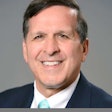The U.K. government last week said it would investigate why fewer patients are being seen by National Health Service (NHS) dentists.
The U.K. government changed its contract with English and Welsh dentists in April 2006 in an effort to put dental care within reach of more people. Instead, 1.2 million fewer people saw a dentist over the following two years than in the previous two years, a decline of 4.2%.
Under the new contract, the government estimated that dentists could average an annual income of $122,538. But the British Dental Association disputed this estimate, arguing that dentists' costs have been increasing, the BBC reported.
Many dentists had been leaving the NHS for private practice, where they can set their own rates. In 1990, only about a tenth of dental work was done privately. But by 2005, that portion had climbed to 40%, the news agency said.
The lack of NHS dentists, whose training is paid by the government, has meant that many people must wait a long time to see the dentist, sometimes suffering poor oral health as a result.
But instead of stemming the flow of dentists into private practice, the new contract only seemed to accelerate it. One in 10 dentists refused to sign, according to the BBC.
The NHS has increased its funding for dentistry and provided more positions for undergraduate dental training, said Health Secretary Alan Johnson in a press release, but these changes may not yet be reflected in the access to care over the past two years.















